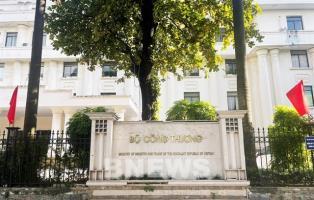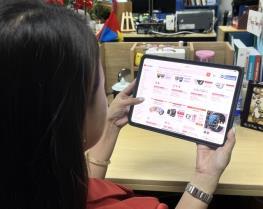Việt Nam News spoke with Phạm Khắc Tuyên, Trade Attaché at the Vietnamese Embassy in South Korea, as the ASEAN Trade Fair 2025 concluded in Seoul. Five MOUs have been signed between Vietnamese companies and Korean clients to export agro-products, including sesame crackers, young pomelo chips, coffee and cassia. The largest deal involves dried seafood exports. Five Vietnamese firms have also partnered with a Korean e-commerce platform to circulate their products online.
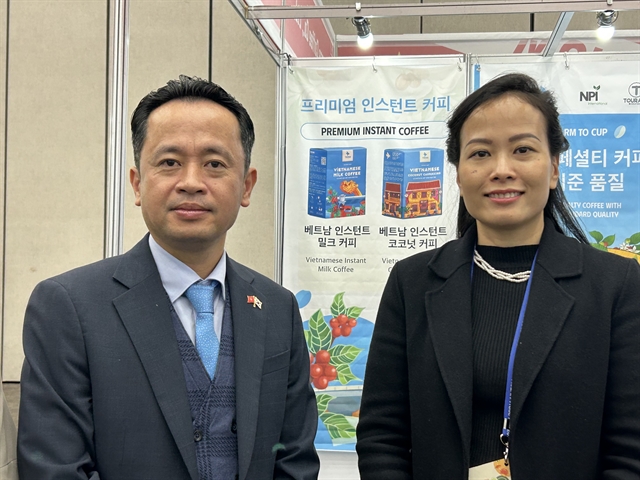
Việt Nam News spoke with Phạm Khắc Tuyên, Trade Attaché at the Vietnamese Embassy in South Korea, as the ASEAN Trade Fair 2025 concluded in Seoul. Five MOUs have been signed between Vietnamese companies and Korean clients to export agro-products, including sesame crackers, young pomelo chips, coffee and cassia. The largest deal involves dried seafood exports. Five Vietnamese firms have also partnered with a Korean e-commerce platform to distribute their products online.
The impact of Korean culture, including music and cinema, on ASEAN countries has become quite enormous, including Việt Nam. Could you assess if the trade volume between Korea and Việt Nam truly reflects the mutual understanding both sides have towards each other? Does the number of companies participating in the ASEAN Trade Fair this year reflect such a relationship?
Cultural interaction, as well as cultural content reflected in Korean products, belongs to a strategic plan, as Korea was a front runner in this field. Ten or even twenty years ago, Korea already had a master plan to export its products worldwide based on cultural activities, such as the film industry in the past, and more recently, the music and entertainment industries. To continue, they still take deeper steps to find new approaches.
For our part, we have already studied, adjusted, and developed our own methods to reflect Vietnamese cultural aspects. We also need to market our culture globally, and at the same time let people know about our products with cultural significance so that Vietnamese products are accepted in the global market. You can see here that kimchi or bibimbap (mixed rice, Korean-style) are very popular Korean foods here (in Korea), but when they are marketed professionally on a cultural background, they created a global wave around these fundamentally Korean foods.
For our part, our Vietnamese products also carry significant cultural value, but our methods must become more professional and well-prepared together with our Korean partners. I hope that Korean companies will cooperate with us in spreading a stronger cultural message along with our products around global markets.
The companies taking part in this year's trade fair have grasped this strategy well, as they know their strengths and locality, such as the significance of companies in Đà Nẵng. Đà Nẵng is the top location in Việt Nam to receive the highest number of Korean tourists. They already know Đà Nẵng and have their preferences for local tourism, including local candies or other wellness products suited to their health. Then, when companies bring their products, which they know Korean clients will accept, these products are well-received by the clients here.
I have had working sessions with some companies and business owners, and I would like to stress further that once you gain a foothold in the Korean market, you need to improve the convenience of your products for customers’ benefit or usefulness. You need to pay attention to details, such as how to make it easier for end-users to use your product, for example, to tear open a coconut cracker, then eat or store it, for convenience of the users.
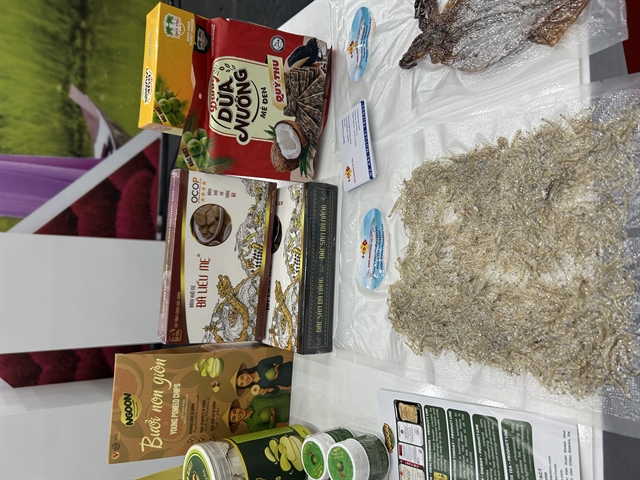
Up until now, could you identify, or have you heard from Korean purchasers, the shortcomings, or how they need to improve the product quality we export from Việt Nam?
Actually, in bilateral trade between the two countries, which exceeded US$80 billion, with processed agriculture and aquatic products making up the majority in such great volume, there would inevitably be some shortcomings or commercial disputes. We have always issued warnings to both Vietnamese and Korean businesses. Korean companies are very strong in doing business, but the ones we're working with are mostly medium- or small-sized businesses. Some of them may not conform to their committed agreements and for our part, some Vietnamese companies really need to improve themselves to be more professional. They could be recommended by someone they know. They are doing international business, but their approach doesn't follow international standards or procedures, and when disputes or disagreements arise, it is harder to resolve the outstanding issues. In Korea, all disputes must be resolved in court, and they all bring issues to court. There's no other way around it. This is the way to resolve commercial disputes.
Regarding the products, some of them still do not meet the Korean standards required to enter the market. Mind you, the Korean standards are relatively high and need to be consistent. We must maintain the same quality level at all times. We should not ensure the best quality only for the first shipment while the quality gradually decreases in subsequent orders. If this happens, the company's reputation will be damaged in particular, and later it will affect the whole sector of Vietnamese companies. So we really need to focus on production and quality control. Above all, we need to make sure to carry out safe transactions. Safety must be the top priority.
We also come to understand Korean culture more when we work with Korean companies. Our Vietnamese and Korean cultures share some similarities, but when we work more closely on trade negotiations, we find some disparities.
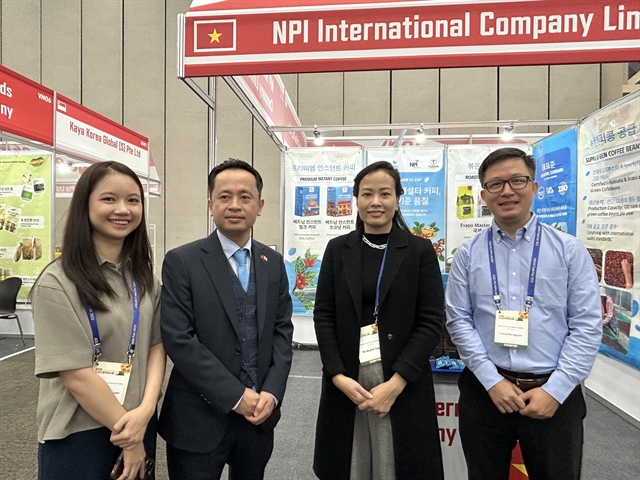
We'll need another programme to share with you the cultural side of negotiating business with Korean partners if our companies want to learn about successful cases or failures in making a business deal. We at the Trade Section of the Embassy are ready to accompany our businesses in getting deeper into the Korean market.
Could you share some examples of cultural differences between the Korean and Vietnamese ways of doing business?
The biggest difference Korean companies have is their rapid reaction to a business suggestion. Maybe it originates in the Korean climate and earth structure; they are fast in all that they do. I can see that the climate in Korea changes very fast, so people must act accordingly. If they don't, they cannot survive. This also has a deep impact on business culture.
All orders or requirements need to be fast and promptly implemented. When we get swept away by their fast pace, we must always maintain the quality when fulfilling a larger order.
Are Vietnamese companies slower, or does it take them more time?
Yes. But Vietnamese companies have been making great progress in improving and getting orders implemented faster over the past period. They are catching up really well. — VNS


